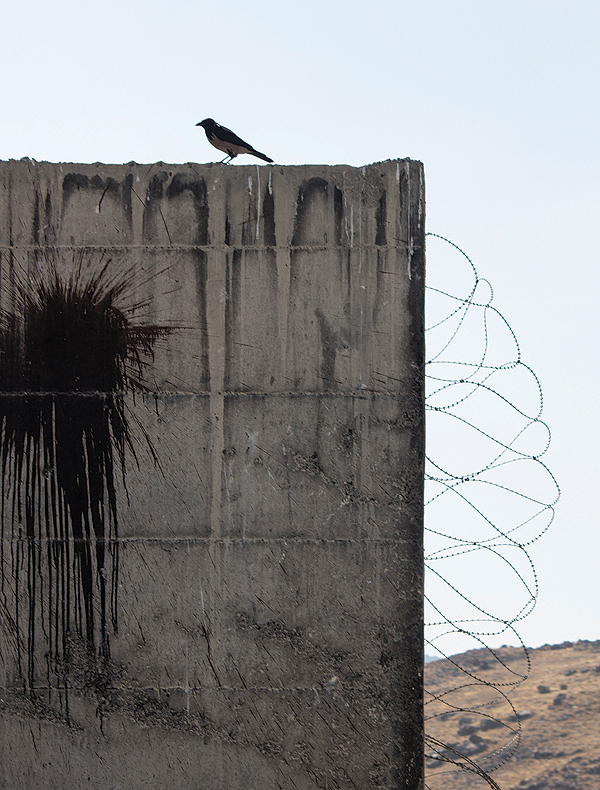The international community recently reaffirmed its consensus with regard to Israel’s settlements in the occupied Palestinian territory. UN Security Council Resolution 2334 states clearly that the “establishment by Israel of settlements in the Palestinian territory occupied since 1967, including East Jerusalem, has no legal validity and constitutes a flagrant violation under international law.”
That consensus withstanding, almost all of Israel’s governments have been, since 1967, successfully steering the takeover of Palestinian land throughout the West Bank.
Over the years, various techniques have been perfected so as to provide the legal basis for this land grab, which is being skillfully promoted by all organs of the state. This has enabled Israel to achieve, apart from the dispossession itself, two other secondary but crucial goals: soothing its conscience and preventing international sanctions. While some measures adopted by the Civil Administration, the Defense Ministry, the planning authorities, the Ministry of Housing, and the Settlement Division, among others, have been challenged on occasion by petitions to the High Court of Justice, the Court has largely managed to comply with the state’s wishes. Israel has been carrying out this massive land grab in plain view, as an explicit act of state, for almost 50 years.
Consequently, the latest fighting match unfolding before us is not worth getting worked up over. In one corner of the ring stand those who are more than happy to have dispossession in the West Bank carry on as it has for years. In this corner are the ones who gobble up “state land” – were you aware that we decided that, in Palestine, “state” actually means Israel? – with a generous sprinkling of firing zones, frequent military training, nature reserves, bypass roads, and denied master plans. In the opposite corner, stand those with an appetite unsated by all the above: they crave even more, hankering after the privately owned lands of the Palestinian people.
A brawl between thieves might be interesting to watch, but why should it elicit outcries about “the end of the ‘rule of law,’” “undermining the High Court of Justice,” and other disasters supposedly about to befall us? Just because two thieves cannot agree whether to leave a few precious scraps behind or steal them too?

Rule of law? As B’Tselem has been reporting for years, Israel operates as though Area C were its own sovereign territory. Controlling the 60 percent of the West Bank designated as Area C affords Israel 100 percent control over Palestinians — in city and village alike. Most recently, B’Tselem’s report “Expel and Exploit,” describes the measures used by Israel to take over rural Palestinian space in the West Bank. These processes have been under way unfettered and in plain sight for easily two decades, with no need to resort to such special dispensations as the Regulation Bill. Thanks to the High Court, without official annexation of land (except of East Jerusalem), the “law” that Israel applies in the West Bank serves not to protect people and their rights but rather to legitimize, whitewash, and cover up almost any injustice. Rule? Certainly. Of law? Only insofar as it advances the dispossession of Palestinians.
Undermining the High Court of Justice? The Court is not some abstract idea to be automatically hallowed and revered. It must be judged by its actions. In other words: Does Israel’s High Court of Justice truly promote justice, or do its rulings occasion other results? When faced with the fundamentally unlawful settlement enterprise, the Court waffled. But when it comes to sanctioning and facilitating the occupation, the Court has been most obliging. Therefore, proponents of dispossessing Palestinians ought to applaud it, not clamor for a bulldozer to raze it – as suggested a few months ago by MK Yogev (Jewish Home). Over the years the Court has increasingly moved away from basic principles of justice and fairness and has become, in itself, a major organ of the occupation. Acting out of fear, myopia, and lack of legal integrity, the High Court has harmed not only Palestinians but also its self-avowed character. The “Regulation Bill” does no more than expand on a longstanding tradition; and for that, the justices of the High Court can blame no one but themselves.
Supporters of the Amona settlers often cite the claim of reliance (on government promises) as an argument in their favor, whereas opponents note that orders to dismantle the settlement outpost were issued very early on. This may be an important argument on the formalistic level of the law. But what about the heart of the matter? About the essence of the law? In practice, these orders lie unenforced for years, while the spirit of dispossession by the state has thrived and flourished for half a century. It is this spirit that funds, supports, promotes, and celebrates taking over “Arabs’ land.” Quibbling over the fine print with the settlers of Amona – and of other settlements – “just” because they did not distinguish public Arab land from private Arab land? Seriously; for as far as the state is concerned, they are one and the same: Arabs are Arabs and their land is ours to hold.
» Hagai El-Ad is executive director of B’Tselem, the Israeli Information Center for Human Rights in the Occupied Territories.


